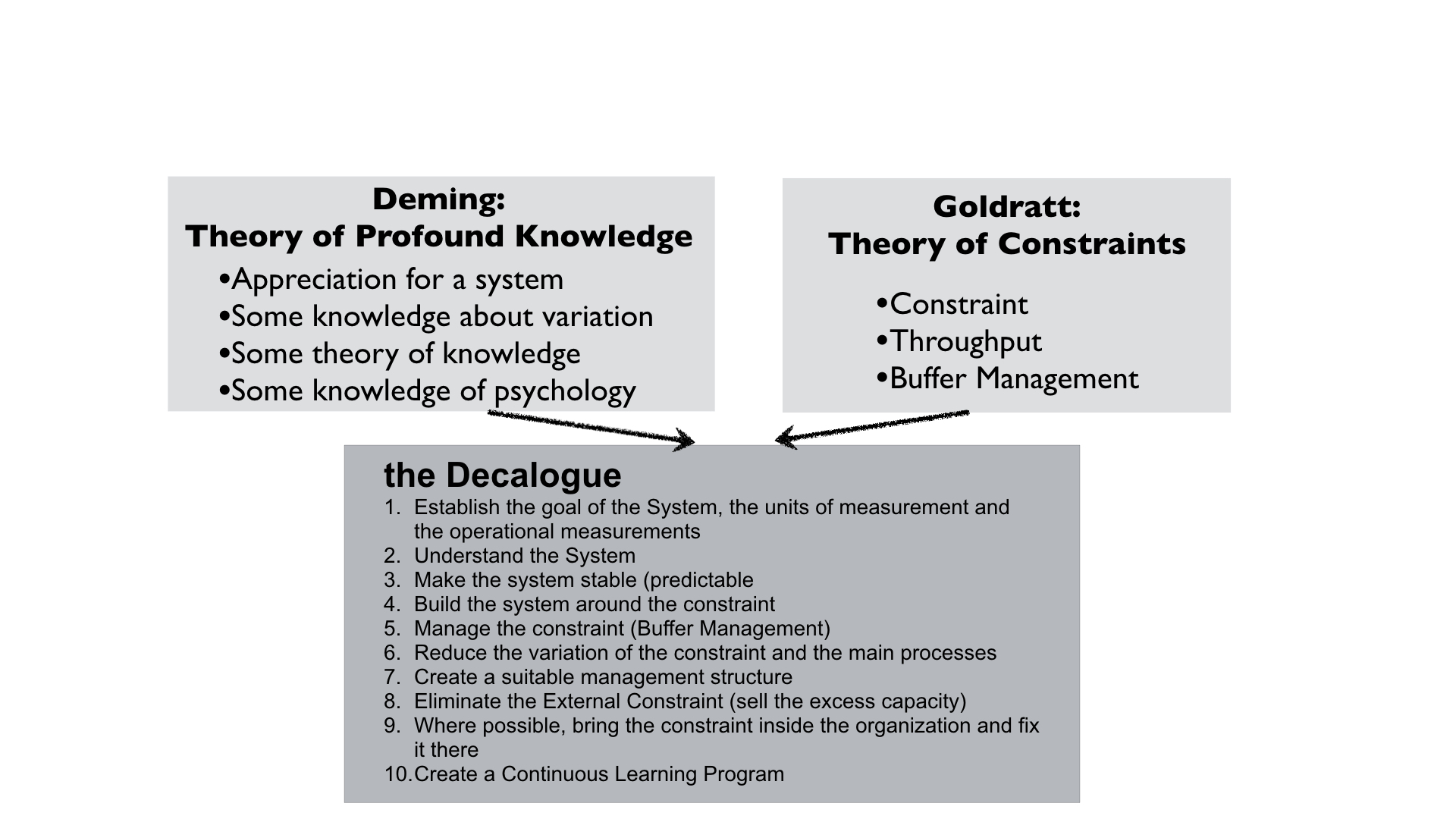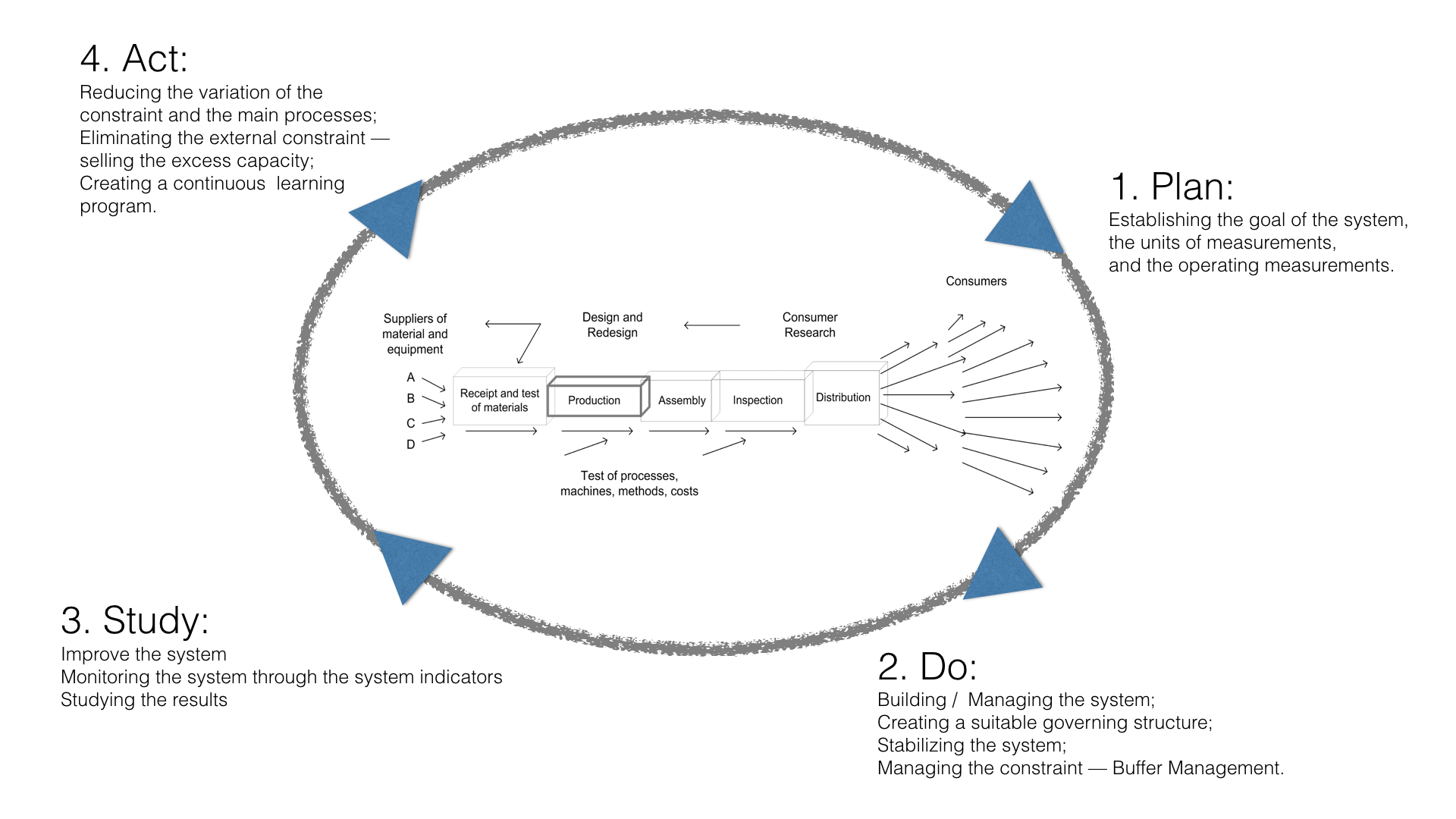Organizations today are plagued by silos. They create artificial barriers that not only slow down but undermine the efforts of companies to achieve their goal. What is needed, instead, is a whole system organization capable of maximizing the flow of its processes, the quality of its output and the involvement of everyone working there. How can the transformation be achieved?
When we adopt a truly systemic approach in an organization the objective is to transform the way the organization pursues its goals to create quality, involvement, and flow. It is not change management, re-engineering or improving, but transformation. The 10 steps of the Decalogue are designed precisely for this. It is not Kaizen, it is not Lean, and it is not business process re-engineering: its goal is not the achievement of better performance because that is a natural by-product; it is a complete paradigm shift in the way the business of the organization is conducted.
Practical company transformation
Philosophically and scientifically, the Decalogue methodology attempts to harness interconnections and create more meaningful practice. It does so by shifting management from a mechanistic, Newtonian worldview in which the results of the whole organization equal the sum of its individual, separate, and hierarchical parts, toward a systemic and interdependent network. It builds on the exceptional contributions to management theory and practice of Dr. W. Edwards Deming and Dr. Eliyahu Goldratt. It achieves the transformation in practical terms by the following:
- Building interdependent processes managed through the control of variation
- Subordinating these interdependencies to a strategically chosen element of the system called constraint
- Designing the organization as a network of interdependent projects with a goal
The last 15 years of relentless practical application of these principles have yielded a new methodological approach in its own right. This has emerged from the interdependencies of practicing together the fundamental tenets of managing variation and constraints in a systemic way.
Practicing the application of the 10 steps has highlighted their inner strengths and weaknesses, prompted new and deeper questions, and provided an opportunity for creating a much more integrated, cohesive, and defined algorithm. What emerged out of this process in over a decade is a powerful management philosophy that provides a cogent and consistent method for the transformation of the present style of management into one of optimization. Optimization means that every component of the system is optimized (and where appropriate, this means sub-optimized in the traditional sense) to achieve the goal of the system.
Continuous improvement, continuous learning and innovation
The possibility for a Decalogue-based management system to produce results over time rests on the ability that the organization has to continually learn what is needed to constantly improve and innovate its performance. Learning does not happen in a vacuum and cannot be based solely on individual desire. Learning and personal development must become part of the way the organization functions and the change associated with it must become a way of life for the company. Learning cannot be “installed” neither can it be forced on people. It must be a personal choice but also an integral part of the way the company has structured itself to conduct business. Learning and the self-development that comes with it must be promoted companywide and from the top management but must come from a designated and empowered source. Over the years, we have come to call it a center for learning.
The Decalogue is founded on the principle of continuous improvement. Not only does it employ the “Plan, Do, Study, Act” continuous improvement cycle designed by Dr. Deming, the entire 10 steps embody that cycle pattern in the way they are carried out. This can be seen clearly when we map out the 10 steps of the Decalogue onto the PDSA cycle itself.
Sign up to our blog here and shift your thinking towards broader, systemic possibilities for yourself and your organization.
About the Author
Angela Montgomery Ph.D. is Partner and Co-founder of Intelligent Management, founded by Dr. Domenico Lepore. She is co-author with Dr. Domenico Lepore and Dr. Giovanni Siepe of ‘Quality, Involvement, Flow: The Systemic Organization’ from CRC Press, New York. Angela’s new business novel+ website The Human Constraint looks at how the Deming approach and the Theory of Constraints can create the organization of the future, based on collaboration, network and social innovation.








Leave a Reply